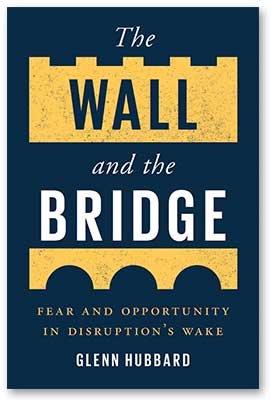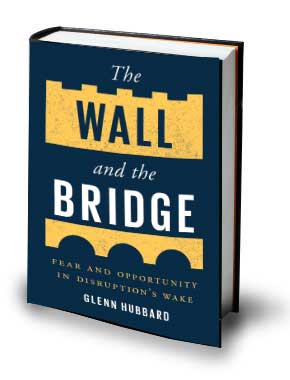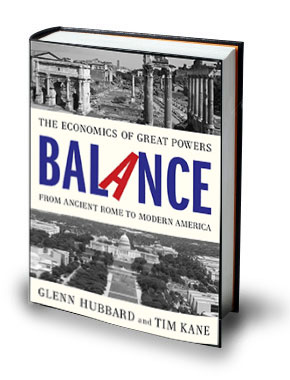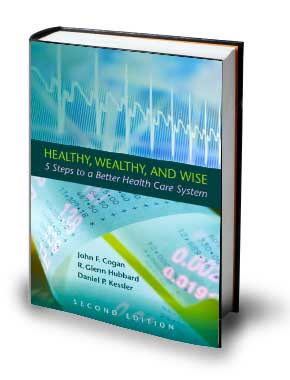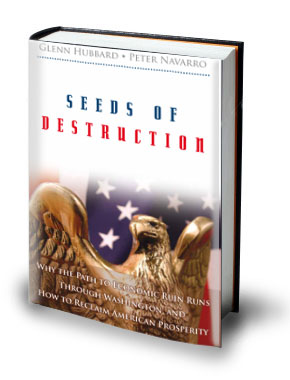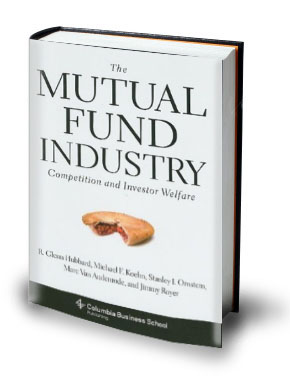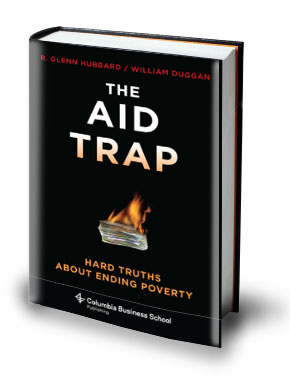THE WALL AND THE BRIDGE – Fear and Opportunity in Disruption’s Wake
By Glenn Hubbard
An informed argument for an economic policy based on bridges of preparation and adaptation rather than walls of protection and exclusion.
Free-market economists often have noted that there are winners and losers in a competitive capitalist world. The question of how to deal with the difficult real-life consequences faced by the losers, however, has largely been ignored. Populist politicians have tried repeatedly to address the issue by creating walls—of both the physical and economic kinds—to insulate communities and keep competition at bay. While recognizing the broad emotional appeal of walls, economist Glenn Hubbard argues that because they delay needed adaptations to the ever-changing world, walls are essentially backward-looking and ultimately destined to fail. Taking Adam Smith’s logic to Youngstown, Ohio, as a case study in economic disruption, Hubbard promotes the benefits of an open economy and creating bridges to support people in turbulent times so that they remain engaged and prepared to participate in, and reap the rewards of, a new economic landscape.
NATIONAL REVIEW – Read an excerpt >
REVIEWS:
"In the tortured partisan debate on economic policy, it is a rare pleasure to find a superb scholar such as Glenn Hubbard framing issues from the center." – Kenneth Rogoff, Harvard University
"Glenn Hubbard’s rare blend of a keen mind, a facile pen, and copious government experience makes him a voice worth listening to. I always do, even when we disagree. The Wall and the Bridge is a great read—packed with good ideas and sprightly writing." – Alan S. Blinder, Princeton University
"When technological change and globalization in recent decades brought frustration over the resulting losses to jobs and communities, there were no guardrails to get these workers back on track. As this compelling book shows, our nation is going to need bridges to help people get through the unavoidable transformations." – Edmund Phelps, 2006 Nobel Laureate in Economics and author of Mass Flourishing
“Given the tight global labour market, his points on training workers — that corporations benefit in the long term by investing in the development of their workers — are timely. The upshot is that to flourish, we all need to build bridges. Government policy must play a central role, while businesses must invest in its people and communities.” – Financial Times

